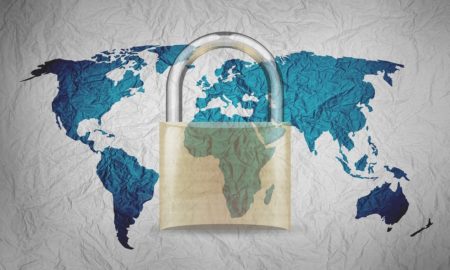1 May 2020
By Roger L Kennedy
roger@TheCork.ie
When GDPR laws came into effect in May 2018, many web users in the EU found themselves suddenly unable to access some US based websites. The problem was an intended consequence of punitive EU laws, which required that any website accessible by EU citizens meet privacy criteria. Websites with the EU made the necessary adjustments (principally by adding nag boxes where users had to press an ‘accept’ button acknowledging cookies etc), however many US websites found it cheaper to just block EU visitors, and display an error message along the lines of ‘This website’s content is not available in your country’. We are now 2-years on, in May 2020, and many sites still block EU access.
How do websites know where an internet user is based?
Whenever you access the internet you are assigned an IP address. The IP address will come from a broad range of addresses which are assigned to your Internet Service provider. In the case of web users in Ireland, the IP address will typically be registered to the corporate address of the ISP in the Capital City, and thus websites will think you are in “Dublin, Ireland”. Many websites use this geo-information to make your life easier. For example, if you visit the website of Tommy Hilfiger (tommy.com), it will know you are in Ireland and display prices in the euro currency. Yet, as described above there are times when gro-information does not help you. Instead, it reduces what you can access.
Fortunately, you can work your way around this and many other challenges by using a VPN.
So, VPN’s allow you to pretend to be in another country?
Yes, VPN acts as a conduit through which all your internet traffic passes. Your traffic then emerges in whatever country the VPN is based in.
Improve security
Plus, VPNs offer other benefits. The connection between your computer and the VPN is encrypted. This means that your ISP will not be able to see what webpages you access. This is useful as some countries have repressive laws which do not favour online gambling and some other activities. As the Irish Times recently reported, VPN’s will secure widespread acceptance soon, just as anti-virus software did in previous years. In short; VPNs increase your freedom by allowing you to bypass national restrictions, they help with maintaining privacy online.
How to choose the best VPN
Now that we are in agreement that VPNs are important for online gambling, how then do you settle for the best one?
An ideal VPN should:
- Have servers in multiple countries
- Not keep a log of your data
- Work with all of your devices, for example your laptop and your mobile phone, and tablet
There’s no such thing as a free lunch
Be wary of free VPNs and all the features that they claim to offer. It costs money to run a network, so how are such service funded? similar to social media sites they might sell your data to advertisers. In any case, a free VPN would not be able to match the services of a paid VPN. Slow speeds are common on free VPNs.
230310 L


